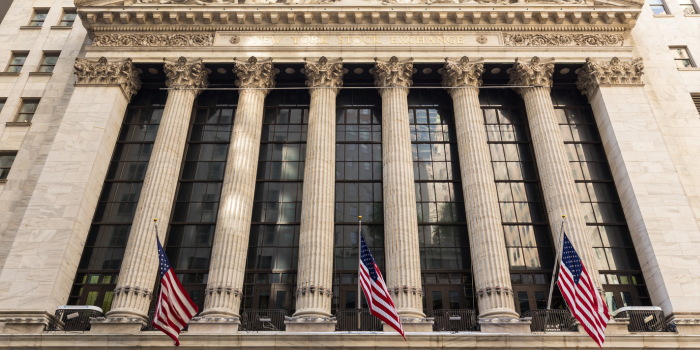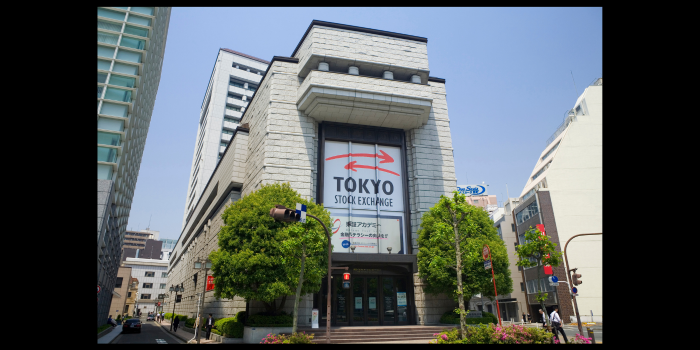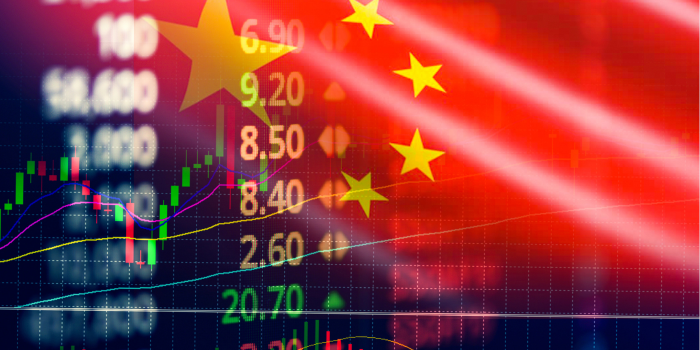When it comes to investments and financial opportunities, the world’s top stock markets stand at the forefront, attracting investors from around the globe. These thriving marketplaces serve as vital hubs for buying and selling stocks and play a crucial role in shaping the global economy.
In this article, we will explore the top stock markets in the world, exploring their significance, performance, and the factors that make them the prime destinations for both seasoned traders and aspiring investors alike.
Top stock markets in the world
1. New York stock exchange (NYSE) – USA

The New York Stock Exchange, located on Wall Street in New York City, is the largest stock exchange globally by market capitalization. It was founded in 1792 and is one of the most prestigious and well-known stock markets in the world. The NYSE is home to many of the world’s largest publicly traded companies, including multinational corporations and industry leaders.
Main Features and listing requirement:
- Total market cap: US$24.3 trillion as of May 2023
- Diverse Listings: It offers a wide range of listed companies from various sectors, such as technology, finance, consumer goods, and energy.
- Trading Hours: Trading sessions on the NYSE typically occur from Monday to Friday, starting at 9:30 AM and ending at 4:00 PM (Eastern Time).
- Auction System: The NYSE uses an auction system, where buyers and sellers interact through designated market makers to determine stock prices.
- Minimum Market Capitalization: Typically, a company seeking listing on the NYSE should have a minimum market capitalization of $40 million.
- Minimum Share Price: The company’s stock price should meet a minimum requirement (e.g., above $4 per share).
- Financial Requirements: The company must meet specific financial criteria related to revenues, earnings, and net tangible assets.
- Corporate Governance: Companies are expected to follow good corporate governance practices and meet NYSE’s standards for board independence and committee structures.
2. NASDAQ – USA

The NASDAQ (National Association of Securities Dealers Automated Quotations) is another major stock exchange in the United States, known for its emphasis on technology and growth-oriented companies.
Main Features:
- Total market cap: US$ 20.13 trillion.
- Tech-Oriented Listings: NASDAQ is particularly famous for hosting technology giants like Apple, Microsoft, Amazon, and Google’s parent company, Alphabet.
- High-Tech Trading: The exchange uses an electronic trading system, facilitating fast and efficient transactions.
- Market Capitalization: While NASDAQ’s overall market capitalization is substantial, it is generally dominated by technology and internet-related companies.
- Trading Hours: Like the NYSE, NASDAQ also operates from 9:30 AM to 4:00 PM (Eastern Time) on regular trading days.
- Minimum Market Capitalization: The company’s market capitalization should meet a specific threshold including a net income of $750,000 per year.
- Financial Requirements: Companies must satisfy certain financial criteria concerning revenues, earnings, and equity.
- Shareholder Equity: A minimum level of shareholder equity is typically required.
- Corporate Governance: Similar to the NYSE, NASDAQ emphasizes strong corporate governance practices.
3. Tokyo Stock Exchange (TSE) – Japan
The Tokyo Stock Exchange, based in Tokyo, Japan, is the largest stock exchange in Asia and one of the most significant globally. TSE is home to many major Japanese companies from various sectors, including automotive, electronics, finance, and entertainment.

Main Features:
- Total market cap: 785,092.665 JPY billion as of May 2023.
- Two Sections: The TSE has two sections, the First Section (for large companies) and the Second Section (for mid-cap companies).
- Trading Hours: Trading sessions on the TSE typically start at 9:00 AM and end at 3:00 PM (Japan Standard Time).
- Strong Corporate Governance: Japanese companies listed on the TSE often follow robust corporate governance practices.
- Market Capitalization: Companies should have a minimum market capitalization, approx. $217 million.
- Financial Performance: The company must meet specific financial requirements concerning revenues, profitability, and net assets.
- Track Record: The company should have a proven track record of operation, usually requiring several years of profitable operations.
4. Shanghai Stock Exchange (SSE) – China
Founded in 1990
The Shanghai Stock Exchange is one of the primary stock exchanges in mainland China and is located in Shanghai. The SSE has experienced significant growth in recent years, driven by China’s economic expansion.

Main Features:
- Total market cap: US$ 6.93 trillion.
- Limited Foreign Access: Foreign investors can access the SSE through the Qualified Foreign Institutional Investor (QFII) and Renminbi Qualified Foreign Institutional Investor (RQFII) programs.
- A-Share and B-Share: The SSE has two primary types of shares: A-shares (for domestic investors) and B-shares (for foreign investors).
- Trading Hours: Trading sessions on the TSE typically start at 9:00 AM and end at 3:00 PM (Japan Standard Time).
- Profitability: Companies applying for listing on the SSE are generally required to have a history of profitable operations.
- Market Capitalization: Specific minimum market capitalization thresholds apply for different types of shares (A-shares and B-shares). Generally, shared capital of RMB (renminbi) 50 million is required to be listed on SSE.
- Track Record: The company should have a certain operating history and stability.
5. Hong Kong Stock Exchange (HKEX) – Hong Kong
The Hong Kong Stock Exchange is a major international financial center, serving as a bridge between China and global investors.
Main Features:
- Connectivity with China: The HKEX offers investors access to Chinese companies through the Stock Connect program, linking mainland China exchanges to Hong Kong.
- Global Listings: It is an attractive listing destination for companies worldwide, including many Chinese corporations seeking international exposure.
- Trading Hours: The HKEX operates from 9:30 AM to 4:00 PM (Hong Kong Time) on regular trading days.
- Market Capitalization: Companies should meet a minimum market capitalization requirement.
- Financial Requirements: Specific financial criteria related to revenue, profitability, and net assets must be met.
- Track Record: The company should have a satisfactory operating history and must demonstrate a sustainable business model.
6. Euronext – European Union

Euronext is a pan-European stock exchange operating in multiple European countries, facilitating cross-border trading and capital flows.
Main Features:
- Multinational Presence: Euronext has locations in cities like Amsterdam, Brussels, Dublin, Lisbon, Milan, Oslo, and Paris, covering a diverse range of European economies.
- Diverse Listings: It offers a wide array of listed companies from various industries, making it one of the most diverse stock exchanges in Europe.
- Trading Hours: Trading hours vary slightly between different locations but generally fall within regular business hours.
- Market Capitalization: The company should have a minimum market capitalization.
- Financial Performance: Specific financial criteria related to revenues, profits, and equity are required.
- Corporate Governance: Good corporate governance practices are emphasized.
7. London Stock Exchange (LSE) – United Kingdom
Founded in 1801, London Stock Exchange, located in the City of London, has a rich history dating back to the late 17th century.

Main Features:
- Market capitalization of listed companies: US$ 3.1 trillion as of May 2023
- International Listings: The LSE attracts a significant number of international companies, including many from emerging markets.
- Market Capitalization: It ranks among the largest stock exchanges globally by market capitalization.
- Trading Hours: Trading sessions on the LSE typically occur from 8:00 AM to 4:30 PM (London Time).
- Market Capitalization: Companies must meet a minimum market capitalization requirement.
- Financial Requirements: Specific financial criteria concerning revenues, profits, and net assets are applicable.
8. Toronto Stock Exchange (TSX) – Canada
The Toronto Stock Exchange is the largest stock exchange in Canada, playing a crucial role in the country’s capital markets.
Main Features:
- Resource and Energy Focus: The TSX has a significant number of listed companies in the resource and energy sectors, reflecting Canada’s resource-rich economy.
- Diverse Economy: It hosts companies from various industries, including financial services, technology, and telecommunications.
- Trading Hours: Trading sessions on the TSX generally run from 9:30 AM to 4:00 PM (Eastern Time).
- Market Capitalization: A minimum market capitalization requirement applies for companies seeking listing.
- Financial Performance: Companies must meet certain financial criteria related to revenues, profitability, and net assets.
9. Deutsche Börse – Germany
Deutsche Börse, located in Frankfurt, is one of the most prominent stock exchanges in Europe and a vital player in the German financial landscape.
Main Features:
- European Presence: Deutsche Börse is well-connected to other European markets and plays a crucial role in the integration of the European financial system.
- Trading Hours: Trading sessions on Deutsche Börse usually take place from 9:00 AM to 5:30 PM (Central European Time).
- Diverse Products: In addition to stocks, the exchange offers a range of financial products, including derivatives and exchange-traded funds (ETFs).
- Market Capitalization: A minimum market capitalization threshold applies.
- Financial Performance: Specific financial criteria concerning revenues, profits, and equity are required.
10. Bombay Stock Exchange (BSE) – India
The Bombay Stock Exchange is one of the oldest stock exchanges in Asia and holds significant importance in the Indian financial market.
Main Features:
- Historic Significance: The BSE has a rich history, dating back to 1875, and is an essential institution in India’s economic development.
- Market Representation: It hosts a diverse mix of companies, representing various sectors and industries in the Indian economy.
- Trading Hours: Trading sessions on the BSE typically run from 9:15 AM to 3:30 PM (Indian Standard Time).
- Market Capitalization: The company must have a minimum market capitalization, typically in Indian rupees.
- Financial Requirements: Specific financial criteria related to revenues, profits, and net assets are applicable.
Final thoughts
Each of these top stock markets contributes to the global financial system by providing investors with opportunities to invest in various companies and industries. As financial landscapes continually evolve, these exchanges continue to adapt and play a critical role in facilitating capital flows and driving economic growth.
Knowing about the top stock markets in the world is essential if you want to be a smart investor. Whether it’s the New York Stock Exchange, where big companies like Apple and Google are listed, or the Tokyo Stock Exchange, which is significant in Asia, each market offers unique opportunities. So, keep learning about these stock markets and take your first steps towards investing wisely. Remember, with the right knowledge, you can make your money work for you and achieve your financial goals! Happy investing!

